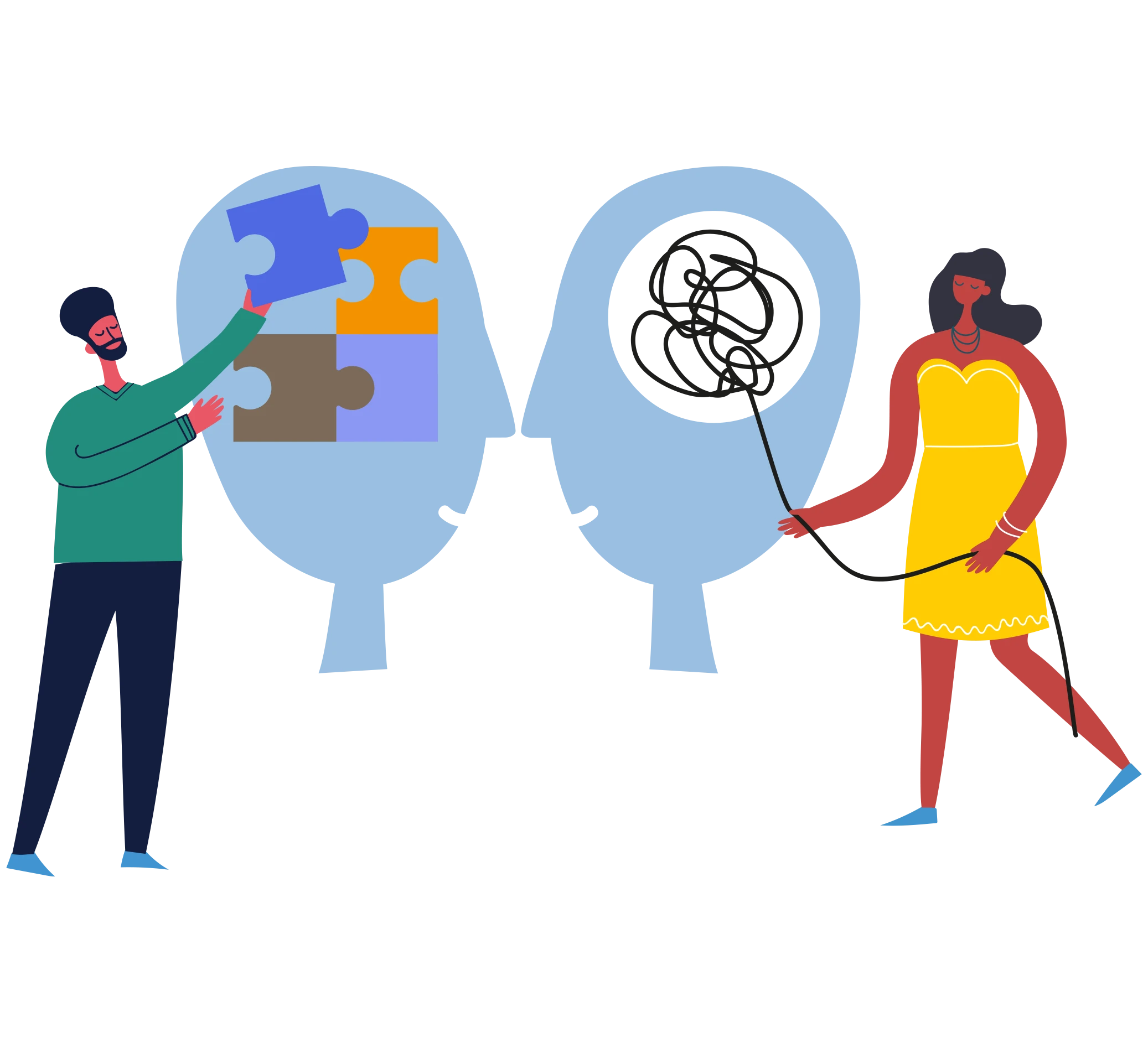Lead Coordinator:
Prof. Dr. Jule Specht
Principle Investigators:
Prof. Dr. Malek Bajbouj, Dr. Ronja Demel, Dr. David Schieferdecker, Prof. Dr. Hanna Schwander, Prof. Dr. Jule Specht
Postdoctoral Researchers:
Dr. Nadine Knab, Dr. Larissa Knöchelmann, Dr. Lucas Köhler
Individuals differ in how receptive they are to affective polarization and in the intensity of their responses. Some people are particularly likely to divide others into in-groups and out-groups, feeling closer to like-minded individuals while harboring negativity toward those with differing views. These reactions also vary in behavior, from cooperation and tolerance to hate speech and violence. People also cope with affective polarization in different ways. All of these attitudinal and behavioral differences are influenced by various individual factors such as personality, emotional regulation abilities, and mental health.
Research Questions and Objectives
By integrating perspectives from psychology, psychiatry, communication science and political science, this Research Stream aims to provide a comprehensive understanding of the psychological foundations of affective polarization. Specifically, we aim to:
uncover systematic individual differences in the degree of affective polarization,
analyze its underlying causes, behavioral consequences, and
identify coping strategies individuals apply to deal with it in constructive ways.
We focus on three key research areas: Personality Characteristics, Socio-emotional Competencies, and Mental Health. Together, these areas help us build a deeper understanding of affective polarization at the individual level. Our findings will support the development of intervention strategies and tools that empower individuals to cope with polarization in a constructive way and reduce its negative effects. These strategies aim to strengthen essential skills such as empathy, tolerance, and constructive dialogue – fostering more resilient and cohesive societies.
We explore how personality influences the way people experience and cope with affective polarization. Our research examines how individual differences shape political attitudes, emotional responses, and coping strategies. We aim to gain a deeper understanding of how stable personality traits shape ideological divisions, emotional reactions, and behaviors in polarized societies – highlighting both vulnerabilities and strengths within individuals that affect democratic participation and social cohesion.
We investigate the role of socio-emotional competencies – especially empathy – in affective polarization. Empathy helps build mutual understanding and cooperation, but is often directed only toward like-minded groups, which can reinforce divisions. We explore how people define “us” and “them,” how this shapes empathy, and what impact this has on political engagement. A key question is whether empathy can reduce affective polarization or if it may actually strengthen group boundaries. This research helps us understand how empathy might be leveraged to reduce affective polarization and improve democratic coexistence.
We explore how mental health and coping strategies influence the ways in which people respond to affective polarization. Mental health includes emotional
well-being, stress management, and social connectedness – all of which shape how individuals deal with societal conflict. Using our research findings and building on established clinical psychological knowledge, we aim to develop evidence-based interventions that strengthen resilience and help people navigate affectively polarized environments.


